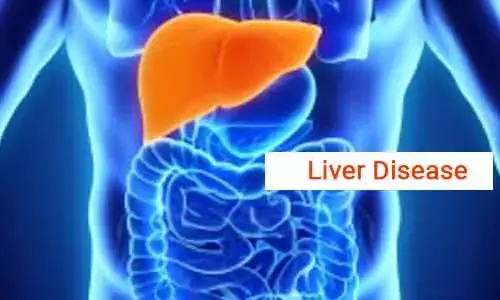- Home
- Medical news & Guidelines
- Anesthesiology
- Cardiology and CTVS
- Critical Care
- Dentistry
- Dermatology
- Diabetes and Endocrinology
- ENT
- Gastroenterology
- Medicine
- Nephrology
- Neurology
- Obstretics-Gynaecology
- Oncology
- Ophthalmology
- Orthopaedics
- Pediatrics-Neonatology
- Psychiatry
- Pulmonology
- Radiology
- Surgery
- Urology
- Laboratory Medicine
- Diet
- Nursing
- Paramedical
- Physiotherapy
- Health news
- Fact Check
- Bone Health Fact Check
- Brain Health Fact Check
- Cancer Related Fact Check
- Child Care Fact Check
- Dental and oral health fact check
- Diabetes and metabolic health fact check
- Diet and Nutrition Fact Check
- Eye and ENT Care Fact Check
- Fitness fact check
- Gut health fact check
- Heart health fact check
- Kidney health fact check
- Medical education fact check
- Men's health fact check
- Respiratory fact check
- Skin and hair care fact check
- Vaccine and Immunization fact check
- Women's health fact check
- AYUSH
- State News
- Andaman and Nicobar Islands
- Andhra Pradesh
- Arunachal Pradesh
- Assam
- Bihar
- Chandigarh
- Chattisgarh
- Dadra and Nagar Haveli
- Daman and Diu
- Delhi
- Goa
- Gujarat
- Haryana
- Himachal Pradesh
- Jammu & Kashmir
- Jharkhand
- Karnataka
- Kerala
- Ladakh
- Lakshadweep
- Madhya Pradesh
- Maharashtra
- Manipur
- Meghalaya
- Mizoram
- Nagaland
- Odisha
- Puducherry
- Punjab
- Rajasthan
- Sikkim
- Tamil Nadu
- Telangana
- Tripura
- Uttar Pradesh
- Uttrakhand
- West Bengal
- Medical Education
- Industry
Beta-blockers may reduce systemic inflammation and benefits liver cirrhosis patients

Researchers have found in a new study that Anti-inflammatory effects of beta-blockers may benefit patients with advanced liver cirrhosis. The findings of the study have been published in the journal Gut.
Approximately 170,000 people die every year in Europe from the direct consequences of advanced chronic liver disease (cirrhosis). In Austria, cirrhosis of the liver is usually due to a fatty liver resulting from excessive alcohol consumption or overeating and/or poor diet and - thanks to effective antiviral therapies - less common due to viral hepatitis.
Chronic liver damage leads to scarring (fibrosis) of the liver tissue, which can ultimately lead to increased blood pressure in the vascular system of the gastrointestinal tract (i.e. portal hypertension).
Portal hypertension can result in serious complications such as ascites and variceal bleeding. A paper recently published by Thomas Reiberger's research group at MedUni Vienna has already shown that increasing severity of portal hypertension is paralleled by inflammatory reactions in the body (systemic inflammation). Pronounced systemic inflammation may ultimately trigger the development of serious complications, such as acute-on-chronic liver failure.
Beta-blocker treatment and portal vein pressure measurement at MedUni Vienna
For many years, beta-blockers have been used as a standard drug treatment but only 50% to 60% of patients achieve a clinically relevant reduction in portal vein pressure. It is therefore necessary to assess the hemodynamic response invasively by means of hepatic vein catheterisation. Over the last few years, beta-blocker therapy and the invasive technique of hemodynamic measurements have been continuously optimised in the Vienna Hepatic Haemodynamic Laboratory at the Division of Gastroenterology and Hepatology of the Department of Medicine III of MedUni Vienna and Vienna General Hospital. Head of the Vienna Hepatic Haemodynamic Laboratory, Thomas Reiberger, explains: "We use portal pressure measurements to ensure that our patients with liver cirrhosis receive both best diagnosis and effective beta-blocker therapy."
Anti-inflammatory effects of beta-blockers in cirrhosis
The recently published study shows for the first time that beta-blockers also have an impact on systemic inflammation. For this study, the researchers determined biomarkers of systemic inflammation prior to and subsequently during ongoing treatment with beta-blockers. This showed that patients suffering from advanced stages of cirrhosis were not only more likely to display a pronounced systemic inflammatory response but were also more likely to benefit from the anti-inflammatory effects of beta-blockers. It was observed that cirrhotic patients who achieve a relevant reduction in inflammatory markers (such as the white blood cell count) under beta-blocker therapy developed significantly fewer complications of portal hypertension and had a lower risk of liver-related mortality.
"After further validation in clinical trials, these promising data may help us to predict the individual benefit of beta-blocker treatment more accurately and thus to give our patients optimal advice regarding their prognosis and other treatment options," explains Mathias Jachs, who was mainly responsible for the study as lead author. The study findings were published in the journal Gut, one of the leading international journals in the field of gastroenterology and hepatology.
https://gut.bmj.com/content/early/2020/11/16/gutjnl-2020-322712
Hina Zahid Joined Medical Dialogue in 2017 with a passion to work as a Reporter. She coordinates with various national and international journals and association and covers all the stories related to Medical guidelines, Medical Journals, rare medical surgeries as well as all the updates in the medical field. Email: editorial@medicaldialogues.in. Contact no. 011-43720751
Dr Kamal Kant Kohli-MBBS, DTCD- a chest specialist with more than 30 years of practice and a flair for writing clinical articles, Dr Kamal Kant Kohli joined Medical Dialogues as a Chief Editor of Medical News. Besides writing articles, as an editor, he proofreads and verifies all the medical content published on Medical Dialogues including those coming from journals, studies,medical conferences,guidelines etc. Email: drkohli@medicaldialogues.in. Contact no. 011-43720751


